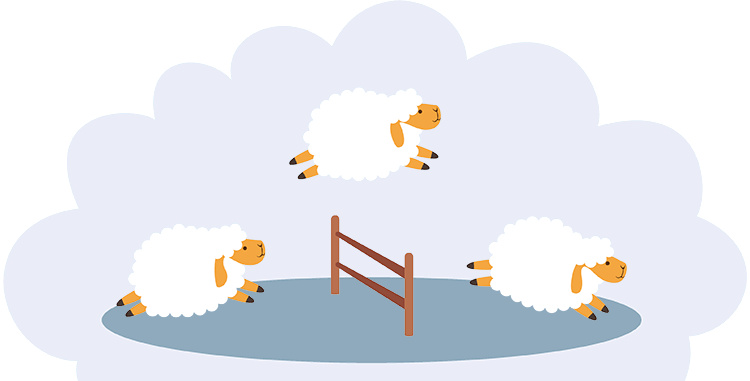Sleep disorders in children
According to medical research, a quarter of all children today experience some form of sleep problem. It would be wrong to believe that sleep problems arise exclusively at an early age, when the physiological regime of “sleep-wakefulness” changes literally every month. The fragile organism of children of all ages is subject to sleep disorders, and growing up of a child is not a guarantee of normalization of sleep.
Computer games with childish cruel plots, horror films and thrillers that disturb the psyche, disturbed sleep patterns, lack of physical activity and a deteriorating environment, so popular among modern children, do not make our children healthier. Stress in the home or school also exacerbates existing problems that lead to sleep disorders.
The general classification of sleep disorders in children includes:
- parasomnias – night fears, somnambulism and enuresis;
- insomnias – difficulty falling asleep, insomnia, sleep disturbance, difficulty maintaining sleep;
- dyssomnia – difficulty falling asleep at a set time, excessive sleepiness during the day;
- Epileptic conditions – convulsions, bruxism, twitching of the limbs, repetitive obsessive movements, without which the child cannot sleep peacefully.
Every mother knows that proper sleep is extremely important for a child’s health. Every day, the child’s body undergoes changes necessary for the full and timely development of a growing man. The hormonal background also participates in this, which directly depends on the quality of sleep. There are several phases of sleep, each of which has a distinct and important function. The phase of deep sleep is responsible for maintaining the hormonal background, a sequential transition to which is possible only through the phases that naturally precede it. With certain sleep disorders, the child’s brain may not reach a deep phase, constantly ” waking up ” the body for various reasons – for example, when breathing stops during sleep (sleep apnea syndrome).
It is easy to guess what destructive effect such an imbalance has on a young organism. Do not underestimate the consequences of the identified problem for the entire family. Sleep disturbances in a child are almost guaranteed to result in sleep disturbances in parents who are forced to put their restless child to bed several times, repeatedly get up in the middle of the night to check the child, feed him, calm him down after a terrible nightmare, change bedding for enuresis, check how a child with sleep apnea syndrome is breathing.
All this leads to fatigue, irritation, and deterioration of the psychological climate in the family, which are accumulating day by day. Exhausted parents begin to think that the child does not specifically want to go to bed calmly and on time, and they punish the child, loading his already tense nervous system. A vicious circle arises.
The best solution in this case is to contact a specialized doctor who specializes in eliminating sleep problems in children.
At the consultation, the doctor will talk in detail with the parents, find out the history of the development of sleep disorders, ask the parents in detail about the daytime regime adopted in the family, and ask all the necessary questions. Based on the results of the conversation, the doctor-somnologist will be able to choose and prescribe the most informative diagnosis of the cause of sleep disorders.
If necessary – in order to achieve maximum results – a child psychologist will meet with the little patient and his parents, who will help return harmony to the family climate, teach parents to correctly understand the child’s mood and needs. In turn, older children will be able to tell the psychologist about their fears and experiences, which often parents do not even suspect.
An excellent remedy for many sleep disorders in children is relaxing therapy based on relaxing baby massage. In combination with a course of massage, a specially selected method of calming a child before bedtime, specially selected at an appointment with a sleep doctor, brings impressive results. In addition, the doctor-somnologist will tell parents how to properly build a sleep-wake schedule for a child, how to distinguish between preventing an attack of parasomnia (for example, enuresis or sleepwalking) and how to independently cure their child using the tactics recommended by the doctor .
Sleep disorders in children are the subject of much extensive scientific research. Voluminous works of domestic and foreign doctors, dissertations and candidate works, textbooks and brochures are devoted to this problem. Different schools of doctors develop different programs and methods for treating sleep disorders in children, but they all agree on the same opinion – correction of children’s sleep disorders is necessary and should be dealt with by a qualified specialist.
Remember, healthy sleep is a healthy baby.

